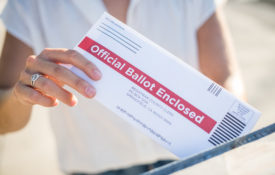-
The Science of Us
No one could accuse the boy’s self-appointed trainers of lacking ambition or being sticklers for ethical research. Psychologist John Watson of Johns Hopkins University and his graduate student Rosalie Rayner first observed that a 9-month-old
-

Direct Democracy: Readers’ Eye Movements May Predict Votes on Ballot Measures
Observing the way readers’ eyes move can predict how voters will respond to real world ballot measures.
-

Handwriting Beats Typing and Watching Videos for Learning to Read
New research published in the journal Psychological Science reveals that handwriting plays a valuable part in language instruction, helping people learn certain skills far faster than they can by typing or watching videos.
-

New Content From Perspectives on Psychological Science
A sample of articles on gender nonconformity, unpublished studies, race in psychological science, self-correction in science, reproducibility and transparency, environmental variants, cognitive ability, group identities, and well-being public policy.
-
Dads Just Want to Help
My late father was a generous and kind man, but often morose. He was troubled about matters large and small, be they the fate of the world or the water in the basement. I remember two
-

A ‘Nudge’ May Not Be Enough to Counter Fake News Online
Can people learn to better identify fake news about COVID-19—and if so, would they be less likely to share that fake story with others? Perhaps, but it may take more than simply priming them to think more critically beforehand.

